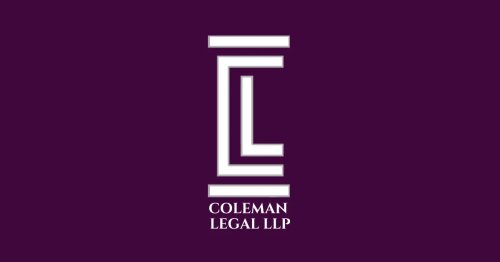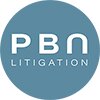Best Education Law Lawyers in Dublin
Share your needs with us, get contacted by law firms.
Free. Takes 2 min.
List of the best lawyers in Dublin, Ireland
About Education Law in Dublin, Ireland
Education Law in Dublin, Ireland, encompasses the rules and regulations governing educational institutions, students, teachers, and administrators within the city. It addresses issues such as student rights, teacher employment, school administration, special education needs, and educational equality. Education Law is primarily guided by various local, national, and international laws, ensuring that educational standards are maintained and that the rights and obligations of all parties involved in the educational sector are protected.
Why You May Need a Lawyer
Individuals may require legal assistance in Education Law for several reasons, including:
- Parents challenging school admission decisions or seeking access to special education support for their children.
- Teachers facing employment disputes or requiring representation in disciplinary hearings.
- School administrators needing guidance on compliance with educational policies and legal obligations.
- Students or their families addressing issues of discrimination, bullying, or other rights violations.
- Resolving disputes over school policies, curriculum content, or examination procedures.
Local Laws Overview
The legal framework for Education Law in Dublin is influenced by several key laws and policies:
- Education Act 1998: This act outlines the functions and responsibilities of schools, boards of management, and the Minister for Education in Ireland.
- Equal Status Acts 2000-2018: These acts prohibit discrimination in educational settings on grounds such as gender, race, and disability.
- Disability Act 2005: Ensures that educational institutions provide appropriate support and accommodations for students with disabilities.
- Child Protection Procedures for Primary and Post-Primary Schools: Guidelines on safeguarding children's welfare in educational settings.
- National Council for Special Education (NCSE) Guidelines: Provide direction on special education needs assessments and resources.
Frequently Asked Questions
1. What rights do students have in terms of education in Dublin?
Students in Dublin have the right to a quality education, protection from discrimination, and access to appropriate educational supports, including special education services if necessary.
2. Can a student be expelled without a formal process?
No, students have the right to a fair process, which includes notifications, hearings, and appeals, before any expulsion decision is finalized.
3. How does the law address bullying in schools?
Schools are required to implement anti-bullying policies and procedures to prevent, report, and address bullying effectively, ensuring a safe environment for all students.
4. Are schools obligated to provide resources for students with disabilities?
Yes, educational institutions are required to make reasonable accommodations and provide necessary resources to support students with disabilities.
5. What is the legal procedure for challenging a school’s decision on admission?
Parents can appeal a school’s admission decision through the Department of Education's established process, which may involve reviews or hearings.
6. How can a teacher address employment disputes?
Teachers can seek advice from legal professionals, their trade unions, or use formal grievance procedures within their school or educational institution.
7. Is homeschooling regulated in Dublin?
Yes, parents who choose to homeschool must register with the Education Welfare Services and ensure that their child receives a minimum standard of education.
8. How are examination disputes handled?
Examination disputes can be appealed through the State Examinations Commission, which provides mechanisms for review and appeal of grades or conduct.
9. What role does the NCSE play in special education?
The NCSE provides policy advice, resources, and support to ensure students with special educational needs receive appropriate education and support services.
10. How can I report suspected violations of education law?
Violations can be reported to the Department of Education or relevant oversight bodies, and legal advice should be sought to understand the options available.
Additional Resources
For those seeking additional support or guidance in Education Law, consider contacting the following organizations:
- Department of Education and Skills: Provides regulatory oversight and resources on educational policies.
- National Council for Special Education (NCSE): Offers guidance and support specifically for special education needs.
- Irish National Teachers' Organisation (INTO): Supports teachers with employment rights and legal services.
- National Parents Council: Assists parents with navigating educational issues and policy advocacy.
- Legal Aid Board: Provides legal assistance and advice for those who qualify based on income.
Next Steps
If you need legal assistance in the field of Education Law in Dublin, consider the following steps:
- Identify the specific legal issue you are facing and gather all relevant documentation and evidence related to your case.
- Consult with a solicitor or a legal professional specializing in Education Law to discuss your case and explore your options.
- Contact relevant organizations or governing bodies for additional resources and support.
- Consider alternative dispute resolution methods, like mediation, if appropriate to your situation, as a way to resolve issues amicably.
- Ensure that you understand your rights and obligations under the relevant laws before proceeding with any legal actions.
Lawzana helps you find the best lawyers and law firms in Dublin through a curated and pre-screened list of qualified legal professionals. Our platform offers rankings and detailed profiles of attorneys and law firms, allowing you to compare based on practice areas, including Education Law, experience, and client feedback.
Each profile includes a description of the firm's areas of practice, client reviews, team members and partners, year of establishment, spoken languages, office locations, contact information, social media presence, and any published articles or resources. Most firms on our platform speak English and are experienced in both local and international legal matters.
Get a quote from top-rated law firms in Dublin, Ireland — quickly, securely, and without unnecessary hassle.
Disclaimer:
The information provided on this page is for general informational purposes only and does not constitute legal advice. While we strive to ensure the accuracy and relevance of the content, legal information may change over time, and interpretations of the law can vary. You should always consult with a qualified legal professional for advice specific to your situation.
We disclaim all liability for actions taken or not taken based on the content of this page. If you believe any information is incorrect or outdated, please contact us, and we will review and update it where appropriate.











